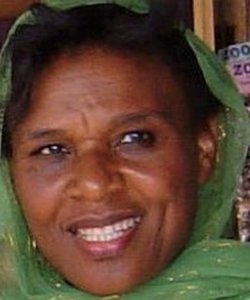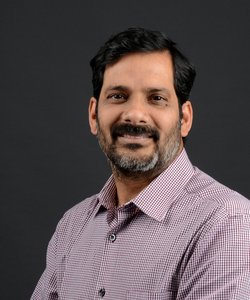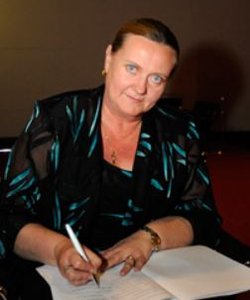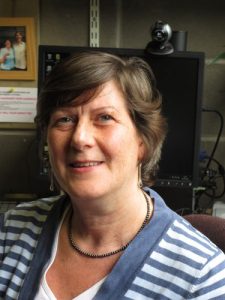Innovation Challenge 6: Sustainable management of Blue Carbon ecosystems

The preservation, conservation and creation of marine ecosystems such as mangroves, seagrass beds and saltmarshes, which remove and store ‘blue’ carbon from the atmosphere for decades to centuries, provides an important means of mitigating climate change for countries where such ecosystems cover a significant area. Blue carbon ecosystems also make an important contribution to the social and economic development of coastal communities, whose role in the in-situ preservation and conservation of blue carbon is substantial.
However, there are major uncertainties in quantifying the global extent of blue carbon ecosystems. There is even more uncertainty about less conventional blue carbon habitats, such as intertidal sand- and mudflats and kelp beds. Further major unknowns are the mechanisms and extents of offshore carbon export from these systems, and the degree to which it joins medium- to long-term carbon sinks, in the deep-water dissolved organic carbon pool or burial in shelf, slope or deep-sea sediments. Finally, understanding of how climate change influences carbon accumulation in mature and restored blue carbon ecosystems is still lacking. Reducing these uncertainties and knowledge gaps is important to inform valuation of blue carbon ecosystems and thus their inclusion in policy and management scenarios, and is a central objective of the IMBeR BCWG.
In addition to economic value, the social and cultural value of blue carbon ecosystems are important, including how blue carbon facilitates Nature’s Contribution to People and a range of Ecosystem Services in a variety of coastal-marine social-ecological systems. The assessment of current policy and management actions in terms of how well they enable the maintenance and development of the services provided by, and economic value of, blue carbon ecosystems including their use in accounts of natural capital, is important.
Why IMBeR can make a difference
IMBeR interdisciplinary expertise in coastal out to offshore environments
IMBeR network – help to compare and join up global regional information
Extend IMBeR expertise in valuation and governance to blue carbon in these offshore stores
Priority research questions:
- How does the ocean act as a sink for carbon and how might this change in a changing ocean?
- What is the economic, social and cultural value of this ecosystem service?
- How can we improve policy, management and governance approaches to prioritise and protect this offshore ecosystem service?
- How can we include blue carbon in statutory monitoring initiatives and national inventories of sinks versus sources of CO2
Focused activity and outputs of the Blue Carbon Innovation Challenge
- Session 18: Beyond blue carbon: Ocean-based carbon dioxide removal (CDR) approaches, at the 5th Effects of Climate Change on the World’s Oceans (ECCWO-5) in Bergen, Norway, April 17-21 2023
- Foresight EuroMarine workshop was held in September 2021 on ‘Climate mitigation potential of the European shelf seabed: significance, risks, recoverability, value and management’
- Session proposal accepted for ASLO conference June 2021 ‘Blue Carbon science for a sustainable future‘
- Organise workshops and meetings 2022
- Publications
- Compilation / inventory of habitats, storage, fluxes etc. roadmap towards national determined contributions (NDCs) useful for Intergovernmental Panel on Climate Change (IPCC), United Nations Framework Convention on Climate Change (UNFCCC) etc.
Who is involved

Tiziana Luisetti
Co-champion
E-mail: tiziana.luisetti@cefas.co.uk
Web page: Link
Centre for Environment, Fisheries and Aquaculture Science, UK
Tiziana has over 10-years’ experience working on the economics of Blue Carbon, including in marine sediments. Her research extends from the economic valuation of Blue Carbon and marine sediments, to how these can be included in natural capital accounts

A’an Johan Wahyudi
Co-champion
E-mail: aanj001@brin.go.id
Web page: Link
Research Center for Oceanography, National Research and Innovation Agency, Jakarta, Indonesia
Marine biogeochemistry, Ocean carbon cycle, Climate change, Ocean acidification, Deoxygenation, Source origin of organic matter, Food web biogeochemistry in marine system, Blue carbon and blue economy

Andrea Belgrano
E-mail: andrea.belgrano@slu.se
Web page: Link
Swedish University of Agricultural Sciences, Department of Aquatic Resources, Institute of Marine Research and Swedish Institute for the Marine Environment (SIME), University of Gothenburg, Sweden
Ecosystem-based management for marine fisheries, ocean governance sustainability and resilience

Greg Cowie
E-mail: Dr.Greg.Cowie@ed.ac.uk
Web page: Link
University of Edinburgh, Scotland
My work on blue carbon has included 40-odd years of field and experimental studies of carbon cycling in settings ranging from peat bogs to rivers, estuaries and both the coastal and deep ocean. Much of the work has included development of biomarkers, and their use as tracers in studies of the factors controlling carbon burial in marine sediments.
My current blue carbon research is focused on developing biomarkers for distinguishing macroalgae (green vs red vs brown) and for tracking and quantifying their contributions to sedimentary carbon sequestration. They are being applied to samples collected in Finland in September 2021 through a EU Assemble+ project, with the goal being to quantify macroalgal contributions to carbon accumulation in Baltic sediments.

Narriman Jiddawi
E-mail: n_jiddawi@yahoo.com
Web page:
Institute of Fisheries Research and other marine resources, Zanzibar, Tanzania
Socio-economics, governance issues, stakeholder empowerment

Joel Llopiz
CLIOTOP Representative
E-mail: jllopiz@whoi.edu
Web page: Link
Woods Hole Oceanographic Institution, USA
@JoelLlopiz

Prateep Nayalk
V2V Global Partnership
E-mail: pnayak@uwaterloo.ca
Web page: Link
University of Waterloo. Waterloo, ON, Canada
Environmental Change; Coastal governance, Social-ecological systems; Marginalization, justice and power

Alice Newton
E-mail: anewton@ualg.pt
Web page: Link
Centre for Marine and Environmental Research, University of Algarve, Faro, Portugal
Alice works on upwelling systems and (anthropogenic) eutrophication, both of which are linked to Blue Carbon. She also works on assessment frameworks of marine social – ecological systems, Regional Seas Conventions, marine environmental policy implementation

Ruth Parker
E-mail: Ruth.parker@cefas.co.uk
Web page: Link
Centre for Environment, Fisheries and Aquaculture Science, UK
Ruth’s research is currently focused on understanding carbon and nutrient flows through the marine shelf ecosystem and how ecosystem-scale human activities and climate can affect or un-couple these flows. She recently led the ‘Blue Carbon’ components of several large interdisciplinary projects and is interested in determining the role of the shelf system in sequestering carbon, and how management measures and governance considerations might help protect existing stocks. She has co-convened international sessions on ‘Blue carbon management’ and been an invited speaker at various blue carbon meetings, including attending the International Blue Carbon Scientific Working Group.

Tim Rixen
E-mail: Tim.Rixen@leibniz-zmt.de
Web page: Link
Leibniz Centre for Tropical Marine Research (ZMT), Bremen, Germany
Biological carbon pump in coastal upwelling systems and its response to climate change and human impacts; carbon cycles in tropical coastal ecosystems with a focus on tropical peatlands in SE Asia.

Carol Robinson
E-mail: Carol.Robinson@uea.ac.uk
Web page: Link
University of East Anglia, Norwich, UK
Microbial biogeochemistry